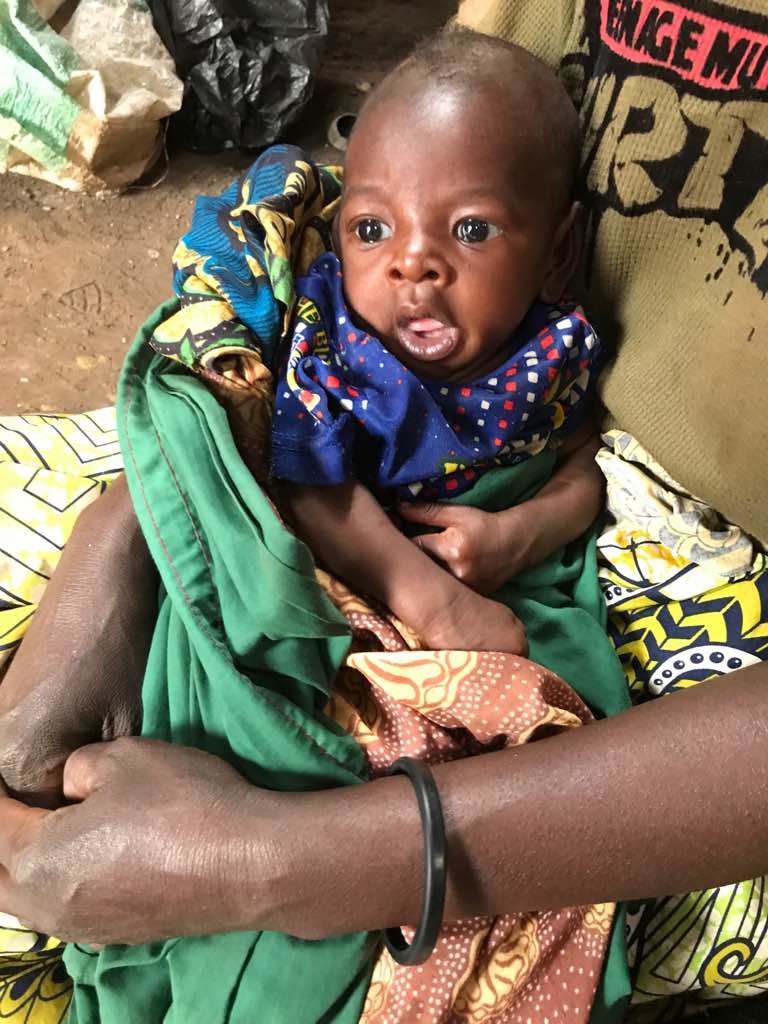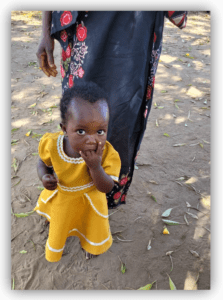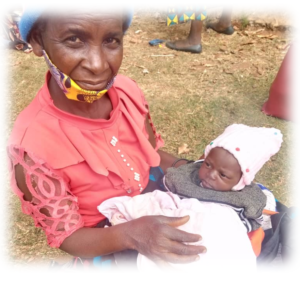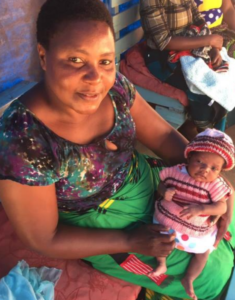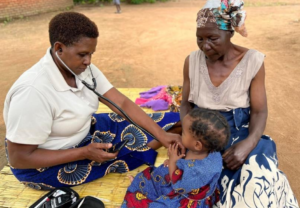Brightwell was born just across the border in Mozambique. His mother died silently at home moments after his birth. Understanding the fragility of the life in their hands, her relatives brought Brightwell to the closest hospital that very day. The hospital happened to be a small community hospital in Malawi, where on admission he weighed 4lbs 3oz.
His maternal aunt stayed with him in the hospital for several weeks, an act demonstrating enormous love and self-sacrifice. In Malawi when anyone is hospitalized they must be accompanied by a guardian – usually a female relative – who will feed them, bathe them, wash their clothes, and advocate for them. Because there are so few nurses in the hospitals, these tasks fall to relatives. This in turn, places a significant strain on most families since this person must leave their own responsibilities back home unattended for an indefinite period (i.e. the care of their own children, the care of their fields). And, if they have come from a significant distance, they must now pay for food, firewood and sometimes medicine to care for their patient. Families may sell their own food for the coming months in order to have cash on hand for such a stay.
Brightwell’s aunt did all of this without question, knowing that the baby faced certain death in the village without a mother. She hoped that the hospital would provide the needed support and they would eventually return home together. Unfortunately over those weeks, Brightwell lost weight. Day after day he continued to deteriorate, but unaware of a better option and still placing her hope in the health care system, his aunt stayed on.
One day a woman visiting the hospital from another village in the area saw Brightwell and his aunt and asked about their story. His aunt told the woman about her sister’s death and her need for support for the baby. This woman making the inquiry came from a village where Joyful Motherhood had previously supported the care of an orphan and she immediately told the aunt about us. The aunt packed their belongings, tied Brightwell to her back and boarded a minibus to Bwaila Hospital, about an hour’s drive away.
When they reached Bwaila they found the office of Joyful Motherhood and within minutes someone was preparing formula while a nurse began the intake and assessment. Brightwell was severely emaciated that day, his weight was just above 3lbs, his eyes were deeply recessed in his skull and his breathing was shallow. His situation was dire but finally there was hope. The nurses instructed his aunt on how to prepare formula, taught her when and how to feed him, told her how to prevent illness, and what danger signs to look for. Finally based on her instructions they drew a map to Brightwell’s home.
Within a few days nurses were in the village for their first visit. They met with the chief and the extended family, they watched the aunt prepare formula, asked about feedings, health, and looked for a bed net. They provided additional education and formula. Once they felt satisfied, they said their goodbyes and promised to return again in a couple weeks. This picture is from the second visit by Joyful Motherhood nurses. Although Brightwell is still small for two months, his health has improved dramatically and he now weighs just over 7lbs.
This story perfectly illustrates the precarious line between life and death in Malawi, the lack of resources even within the health care sector, and the important role that Joyful Motherhood plays in creating a net beneath existing gaps. This story involves one tragedy but without JM it may have included several others. Without JM, Brightwell would have died within a short period of time, and his aunt’s family (including her mother, her children and the orphaned children of her sister) may have faced more significant hunger due to the financial strain on their extended family and the absence of the two adults in their prime. It is hard to read these stories, but it is inspiring to recognize the extent of sacrifice and love individuals make in order to care for the most vulnerable members of their communities. And, it should give you great pride knowing that the support you offer is enough to turn these stories around and transform lives. Thank you.

